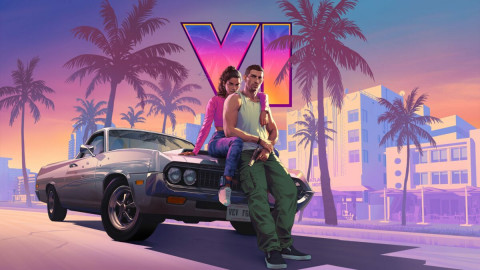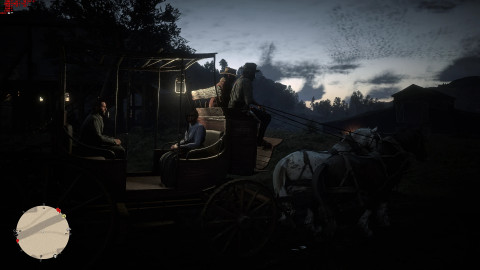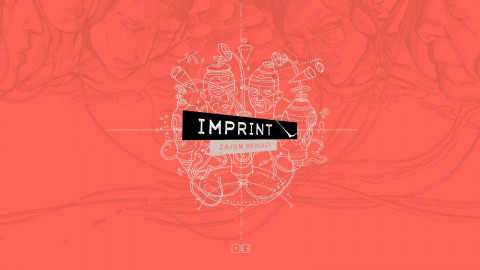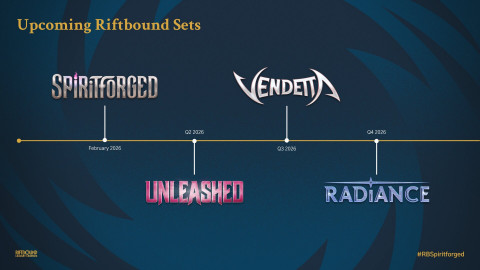
By the time the credits rolled on Uncharted 4: A Thief’s End, many of fans’ most pressing questions had been answered. We learned the fate of Nathan Drake’s lost brother, Sam, we uncovered the mysterious history of the brothers’ family, and we even got a chance to see Nathan and Elena live out – presumably – the rest of their lives in peace, as their daughter attempted to uncover information on her parents’ adventurous past. There were still a few loose threads surrounding Sam and Sully’s future as adventurers, but much of this could be left up to players’ imaginations.
But Naughty Dog still had one more story to tell, free from the baggage of Nathan Drake and focused instead on co-leads Chloe Frazer and Nadine Ross. Uncharted: The Lost Legacy isn’t a full-fledged sequel to Uncharted 4, but rather a brief standalone adventure that builds on the game’s ideas while also introducing a few unique bits of its own. In doing so, Naughty Dog has created a game that offers a refreshing new perspective that players hadn’t experienced before, but it comes at the risk of diminishing returns. While certainly worthy of the Uncharted name, The Lost Legacy deserves to be the finale in a franchise that is ready to end.

Taking place a short time after the events of Uncharted 4, The Lost Legacy finds Frazer and Ross in a situation that is classic Uncharted. On the run in India from a corrupt insurgent leader hell-bent on the destruction of locals he deems unworthy of the country’s land, Chloe and Nadine are in a rush against time to not only survive, but also locate the mythical tusk of Ganesh. It’s the classic “morality versus fortune” setup that we’ve seen in previous Uncharted games before, but Chloe and Nadine don’t play the exact same role that Nathan did in the main series. Chloe’s own mission is made more complicated by the relationship she has with a certain returning character, and the legacy of her father (hence the game’s title) is arguably a larger driving force in her journey than the promise of cash.
Nadine’s tale is the more interesting of the two, and it’s a shame that we don’t get to take control of her at any point during the game. After her Shoreline private military company was thrown into disarray by none other than Nathan Drake, she has little choice but to partner with Chloe in order to gain back the reputation she had lost. But it just so happens that Shoreline has returned under new management, and Nadine’s struggle between redeeming herself and destroying the company she once led makes for some morally gray moments. It’s easy to forget that she was an antagonist in Uncharted 4 who left Nathan to die, and seeing her grow into a complex, well-rounded character makes up for some of the trope-heavy story beats.

But why couldn’t Naughty Dog use this same formula with other supporting characters in the future? Couldn’t Sam or Sully star in their own game? They certainly could, and if money is loud enough, Sony might be obliged to listen, but those characters didn’t have the same internal conflict of Nadine. Crass humor and occasional double-crossing aside, the majority of Uncharted’s “good guys” are pure heroes -- not anti-heroes – and its villains don’t have an ounce of righteousness in their bodies. When the big baddie dies at the end of Uncharted 4 or even Golden Abyss on Vita, they deserve what they get. Nadine didn’t deserve death after her actions in A Thief’s End, but rather a chance at redemption. She’s given that chance in The Lost Legacy, and subsequent games could certainly put her front-and-center, but they would likely seem unnecessary.
Perhaps it’s more obvious that the Uncharted series was on its last legs if we examine the gameplay additions introduced in The Lost Legacy – they’re few and far between. Chloe has access to a lockpick for opening up certain doors and weapon crates, often while enemies are nearby, and a few puzzles make use of shadows and patterns in ways that feel genuinely unique. But for the most part, The Lost Legacy is still tethered to the pillars of the series in ways that keep it from subverting player expectations. Even the final, climactic encounter bears some similarity to Uncharted 2, albeit with a little extra Chloe and Nadine flair.

The Lost Legacy does attempt to break the mold of Naughty Dog’s previous work with an enormous, wide-open level near the beginning of the game, which forces Chloe to utilize a map just to keep track of her own location in relation to each objective. Exploration seems like a key feature of the Uncharted series, so this would presumably work to great effect, but that isn’t really the case. The illusion of exploration is what we see in the previous games. Nathan and company are ferried along from one gorgeous vista to the next, but they’re still restricted by the carefully-placed yellow handholds on the sides of buildings and mountains. This was effective, as it allowed the pace to stay quick without forcing players to move through literal corridors, but by moving away from this in The Lost Legacy, we’re left with a lot of extra backtracking that’s free from the explosions and giant set-pieces we expect from an Uncharted game. It’s a trend that isn’t limited to Uncharted, but several other open-world games from companies like Ubisoft. For a long time, bigger was better, but we’ve reached a point where games are expanding just so they can brag about it on the back of the box.
Uncharted is an important series that helped shape the action-adventure genre over the last generation with relatable characters and action moments as exciting as any blockbuster film. The fact that the series has begun to run out of steam doesn’t change any of that, and Naughty Dog should be tremendously proud of its work on each and every game. But Sony must now give the studio a chance to prove itself once again with an innovative and fresh new franchise. Whether or not it can be as commercially successful as Uncharted or The Last of Us is anyone’s guess, but it will undoubtedly impress fans.

Disclaimer : The following article was written freely based on the author's opinion, and it may not necessarily represent Inven Global's editorial stance.
Sort by:
Comments :0






